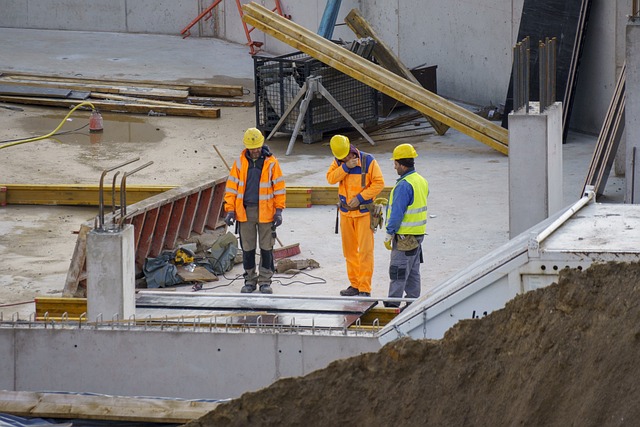Operating a construction business in Australia involves navigating a complex landscape of construction law which governs various aspects of building projects, from contractual obligations to safety regulations. This comprehensive guide sheds light on the essential legal considerations for construction businesses, emphasizing legal compliance in construction and the significance of contracts in building. Understanding these elements can help construction businesses minimize risks, avoid legal disputes, and gain a competitive edge in the vibrant Australian construction industry.
Overview of Construction Law in Australia
In Australia, construction law encompasses a wide range of regulations and statutes that affect the planning, execution, and completion of construction projects. Various legislative frameworks exist at the federal, state, and local levels, making it vital for construction businesses to be fully aware of and compliant with these laws. Key areas include:
- Contract Law: Outlines the legal requirements for agreements made between parties.
- Building Codes and Standards: Ensures construction meets safety and quality regulations.
- Environmental Law: Governs the impact of construction practices on the environment.
- Work Health and Safety (WHS): Mandates safe work practices and protection of workers.
Being informed about construction law in Australia helps businesses mitigate risks associated with non-compliance, which can lead to significant financial and legal consequences.
The Importance of Legal Compliance in Construction
Legal compliance in construction is not just a legal obligation; it is a crucial element for any construction business that seeks to thrive in a competitive environment. Compliance involves adhering to laws, regulations, and industry standards that govern construction activities. Some pivotal aspects of legal compliance include:
Understanding Your Obligations
Construction businesses must be well-versed in understanding their obligations under various laws. This includes the Building Code of Australia, which provides uniform standards across the country. Also, keeping up with industry standards set by organizations such as the Australian Standards (AS) ensures that construction practices meet safety and quality metrics.
Regular Training and Updates
Continuous training for staff can enhance a construction business’s legal compliance. Regular workshops and seminars help keep employees informed about the latest changes in construction law in Australia. Additionally, understanding changes in safety regulations can significantly reduce workplace accidents and enhance morale.
Contracts in Building: The Cornerstone of Construction Projects
Contracts in building are fundamental to establishing the framework of a project, outlining roles, responsibilities, and expectations for all parties involved. Here are some key components to know:
Type of Contracts
There are different types of contracts used in the construction industry, including:
- Fixed-Price Contracts: A set price is agreed upon for the project, which protects clients from cost overruns.
- Cost-Plus Contracts: The contractor is paid for actual costs plus a fee, suitable for projects where scopes can vary.
- Design and Build Contracts: This type integrates design and construction services, simplifying project coordination.
Key Clauses in Construction Contracts
Every construction contract should include essential clauses such as:
- Scope of Work: Detailed description of the project.
- Payment Terms: Specifies payment schedules and amounts.
- Dispute Resolution: Outlines how disputes will be handled should they arise.
- Termination Clause: Conditions under which parties may terminate the contract.
Investing time in drafting clear and comprehensive contracts can prevent misunderstandings and reduce potential legal disputes in the future.
Risk Management and Insurance
Effective risk management is crucial for construction businesses. Encountering unexpected challenges is common in construction, and having a robust risk management plan helps mitigate these risks. Key strategies include:
- Insurance Coverage: Obtaining adequate insurance helps protect against potential liabilities. This includes public liability insurance, workers’ compensation, and contractor all-risk insurance.
- Risk Assessments: Conducting regular risk assessments can help identify potential hazards in the workplace ahead of time.
- Documentation: Thorough documentation of all contracts, communications, and changes during the project can serve as vital evidence in the event of disputes.
Dispute Resolution in the Construction Industry
Disputes are an unfortunate reality in the construction industry. The ability to effectively manage and resolve disputes is vital for maintaining relationships and advancing projects. Common methods of dispute resolution include:
- Negotiation: Informal discussions aimed at reaching an agreement.
- Mediation: Involves a neutral third party to facilitate discussion and help both parties reach a resolution.
- Arbitration: A more formal approach where a third party makes a binding decision.
- Litigation: The last resort, involving taking legal action to resolve disputes in court.
Choosing the right method of dispute resolution can save time and resources, allowing construction businesses to focus on delivering quality projects.
Conclusion
Navigating the legal landscape of the construction industry in Australia can be complex, but with proper understanding and proactive management, construction businesses can thrive. Paying close attention to construction law in Australia, ensuring legal compliance in construction, and drafting solid contracts in building are essential steps to achieve success while minimizing potential risks. By staying educated, implementing solid practices, and valuing legal expertise, your construction business can build a strong foundation for future projects.
FAQs
1. What are the key laws governing construction businesses in Australia?
Key laws include the Building Code of Australia, Work Health and Safety Act, and various state-specific regulations that affect construction activities.
2. How often should a construction contract be reviewed?
Construction contracts should be reviewed regularly, especially before starting a new project and whenever significant changes occur in the project scope.
3. What is the role of insurance in construction?
Insurance protects against potential liabilities, such as property damage or personal injury, which can occur during construction work.
4. What are the benefits of mediation in construction disputes?
Mediation is less formal than litigation, often resulting in quicker resolutions and less expense, helping to preserve working relationships.











